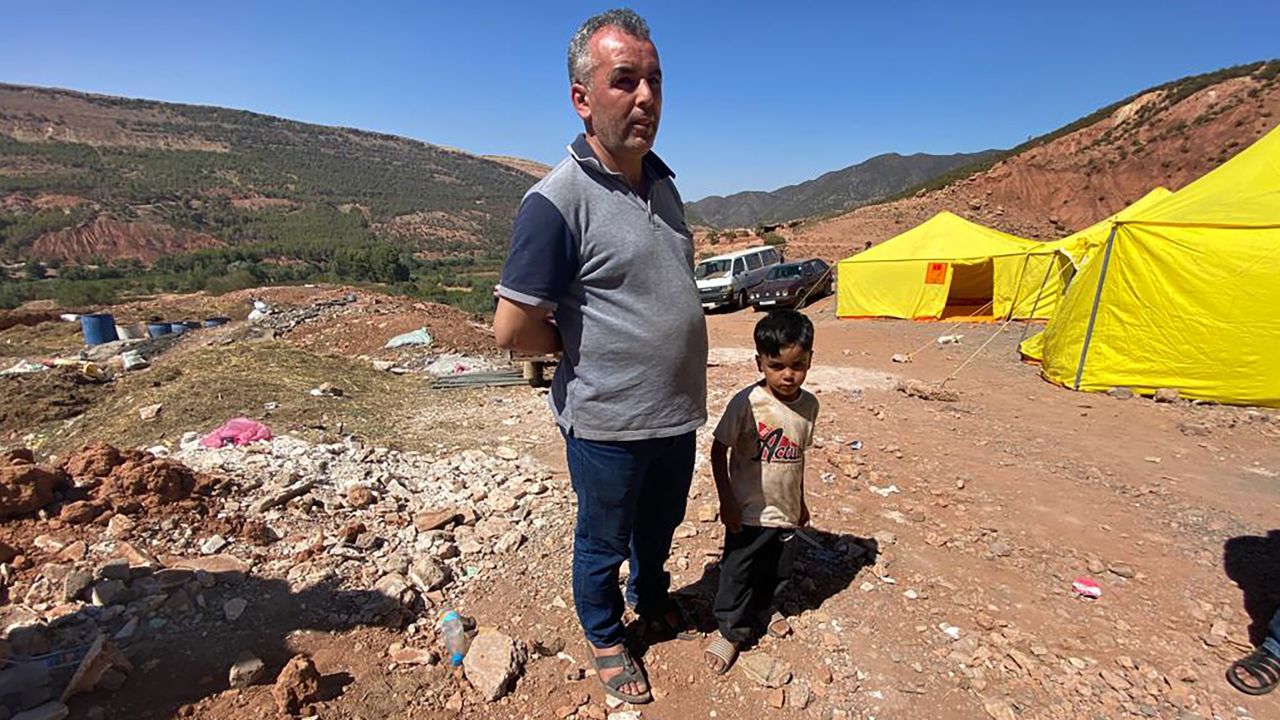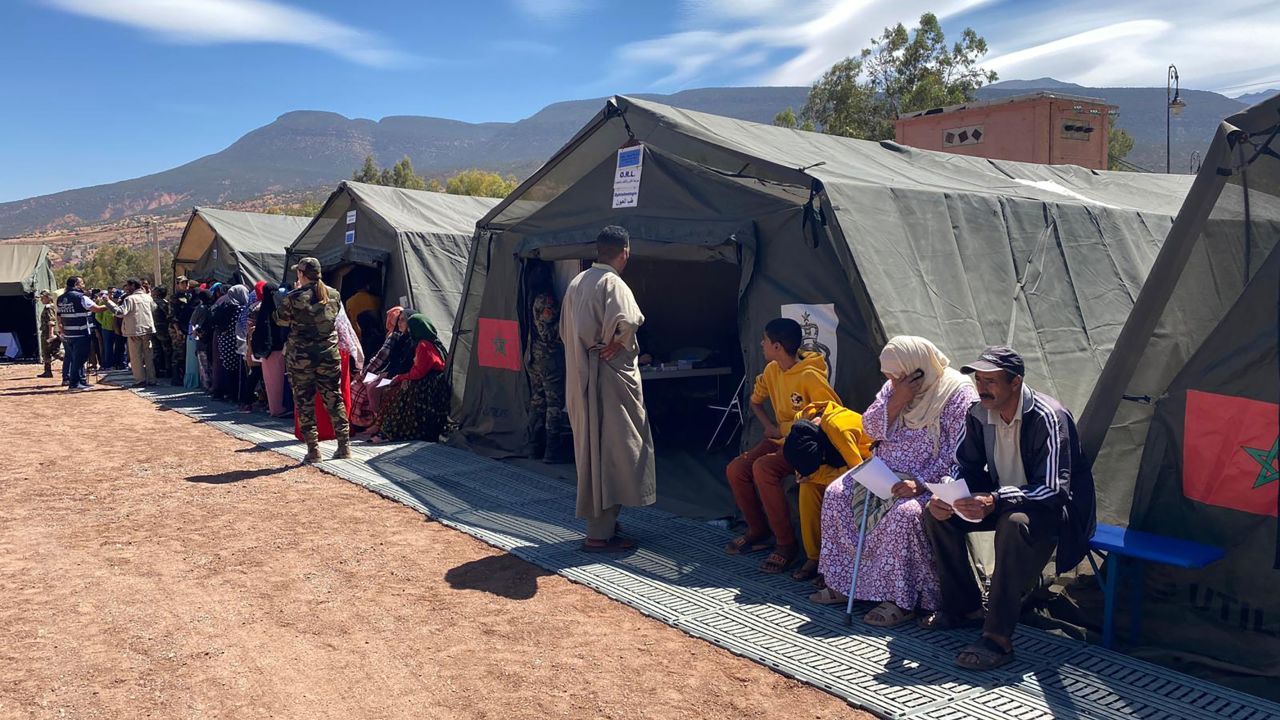Tafeghaghte, Atlas Mountains
CNN
—
Wearing an elegant holiday outfit and sunglasses, Chadia Halimi looked a bit out of place in the dusty camp on the edge of Tafeghaghte, a mountain village in the Moroccan Atlas Mountains that was leveled in last week’s earthquake.
“It’s not the holiday I planned,” the 26-year old French woman told CNN on Tuesday. “But I was here, and I wanted to help. These people have nothing.”
Halimi was vacationing in Morocco when the earthquake hit last week. She said she was in shock and felt lucky to be alive. When an appeal for volunteers popped up on TV in her hotel, she signed up. A few hours later, she was in the mountains with an NGO called El Baraka Angels, handing out donations and comforting people.
The devastating quake killed more than 2,900 and left tens of thousands homeless. Many of the survivors had to wait for days for official government help to arrive, relying instead on aid that was organized and delivered privately by small groups of volunteers from across the country.
The Moroccan government said earlier this week that it was difficult to deliver aid where it was most needed, because the areas where the earthquake caused the worst damage were in hard-to-access mountainous regions.
CNN visited several villages where locals said they felt abandoned by the government.
“Nothing is happening. We are just waiting. They decided to do nothing. They are just telling us to be patient, making promises,” Sami Sensis, whose parents were killed in the village of Moulay Brahim, told CNN on Sunday, some 36 hours after the earthquake.
Ibrahim Goodman, who survived the quake in a small village near Asni, said people there waited for almost 48 hours before any help arrived. In the village of Ifghan, AbdelHaq Edabdelah, whose shoulder was badly hurt when he was buried in rubble, decided to walk through a destroyed section of a road to seek a doctor after it became clear medical aid wasn’t coming.
But Amal Zniber, who heads the Moroccan educational charity Amis Des Écoles and has years of experience in humanitarian relief work, said people whose lives have just been upended by a tragedy may not see the fuller picture.

“It’s absolutely not true that the government hasn’t helped. The government has been there from day one,” she told CNN.
“The extent of what has happened is so extreme that you cannot be everywhere at the same time at that moment. Sometimes you need to step back and assess. And the main focus was getting people safe and roads being cleared to be able to get to those people who didn’t have any means,” she said.
Morocco accepts help from a handful of countries
When the devastation of the earthquake became clear, several countries offered to send help.
On Sunday, Morocco’s Interior Ministry explained that it “conducted a careful assessment of the needs in the field” and said that a “lack of coordination in such cases would be counterproductive.”
It said that based on the assessment, it accepted offers of support from Spain, Qatar, the United Kingdom and the United Arab Emirates but it has not yet responded to other offers.
US Secretary of State Antony Blinken said on Saturday that the US was “ready to provide any necessary assistance” to Morocco, but Morocco has not so far asked for that help.
French President Emmanuel Macron said Paris was also ready to help whenever the Moroccan authorities “deem it useful.”
When Morocco did not take France up on the offer, it sparked outrage in some French media outlets, which reported the refusal might be down to diplomatic relations. Macron called such reports “unfounded controversies.”
Although there has been palpable frustration on the ground, France also said that Morocco hadn’t refused aid, while in its statement the Interior Ministry said it could yet seek help from other “friendly countries.”

By Monday, the official response was more noticeable even in some of the most remote areas. Government-provided large yellow tents were popping up in the villages in the mountains, providing shelter to people who have been staying outside since the earthquake on Friday.
Heavy machinery, including diggers and other equipment, was being delivered. The military was organizing air drops of aid. A large field hospital and a camp for displaced people was built in Asni.
The volunteers also kept coming. Abdelali Amzil and his neighbors loaded a van full of food and water on Monday and drove it to the mountains from Casablanca, about 300 kilometers away. “All the neighbors brought something,” he told CNN in the village of Ouirgane, where 600 people lost their homes and were camping in a nearby grove.
Zniber said the response from ordinary people has been “incredible.”
“Everyone wants to help. We’ve had one man who gave a half a bag of rice to someone who was going up to the mountains. He said ‘this is all I have. Can you please take it to them?’” she said.